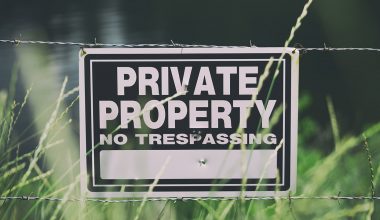The government retains some rights to your property in four ways. These include “police power,” “eminent domain,” “taxation,” and “escheat.” In California, escheat is the last constitutional power that happens when a real estate property owner dies with no heirs to inherit it. When this happens, the property automatically reverts to the state. This task is anything but trivial in California because the state uses a two-tier system for reporting escheat and unclaimed real estate property. In order to comply with California’s escheat process and real estate unclaimed property reporting laws, holders must follow the steps outlined in this article.
What Is Another Term for Escheat?
The term ‘ Escheat” is also synonymous with heritage, inheriting and inheritance.
Definition of Escheat in Real Estate
The term “escheat” refers to the power the government exerts over unclaimed real estate that has not been claimed by the rightful heirs. Usually, this happens if a person passes away without leaving a will or having any heirs. Assets that go unclaimed for a long period of time may also be granted escheat rights. These situations are also known as bona vacantia, or simply unclaimed property.
Escheat, property always has a recognized owner, which is the state or government if no other claimants to ownership exist. Each state jurisdiction in the United States has its own laws and regulations governing escheat rights and related matters.
The final government power is escheat. And, in most cases, the escheat process is terminable. This implies that ownership of the real estate property in California reverts to any rightful heirs who may appear. There aren’t many ways to describe this, but you could say that the government “cheated” to get the property because they didn’t know who died.
Escheat Example
Think about an elderly woman who lives in a nursing home. In her room, there are no pictures of friends or family members. She never has visitors and all her bills go from her large savings account. None of the staff is aware of her background, and she never discusses it. She may even have brain cancer and be unable to recall her own family. She passed away in her sleep one night. There is no will, and the list in her records has no heirs. What happens to her savings account, and what happens to her beautiful hilltop mansion filled with antiques and priceless artwork? Instead of passing the real estate property down to heirs, the state assumes ownership of the property through a process known as the “power of escheat.”
How Does Property Become Unclaimed?
When people die and leave property behind, their wills will direct how the probate courts will distribute their property. When the court can’t find the will or the heirs of a deceased person, the state will take possession of the property and use it for its own purposes. Likewise, if tenants leave their apartments without collecting their security deposits, or if their former landlords are unable to forward the money and any left-behind personal property to the tenants’ new addresses, they will account for that property, and transfer it to the state after three years.
Below are the steps that holders must take in order to comply with escheat or unclaimed real estate property reporting laws in California.
#1. Identify Unclaimed Property
California businesses must review their financial records on an annual basis to determine if they own any property that is dormant or inactive for more than the requisite dormancy periods. Checking and savings accounts, customer overpayments, payroll checks, insurance proceeds, stocks, other securities, and utility deposits are some of the more common forms of unclaimed property.
#2. Carry Out Holder’s Due Diligence
California’s unclaimed property laws require holders of unclaimed property to use reasonable efforts to reconnect with property owners. Prior to reporting accounts to the State Controller’s Office, holders must send notices to all owners of securities, regardless of value, and to all safe deposit boxes and other property types valued at $50 or more.
Read Also: Due Diligence Process
#3. Fill Out the California Holder Notice Report
The Holder Notice Report is the first step in California’s two-part escheat reporting process. This report is due annually on November 1st (May 1 for life insurance companies). At this time, California holders are not to remit any properties. The holder of any property received will get it back.
#4. Respond to Owner Claims as a Result of Notices From the State Controller’s Office
Following receipt of the Holder Notice Report, the State Controller’s Office will conduct its own due diligence on reported owners. These notifications will notify owners to contact the holder in order to claim their unclaimed property before the June 1 to June 15 Holder Remit Report period (December 1 to December 15 for life insurance companies). Payment is due to the property owner as soon as the holder makes contact with them.
#5. Submit a California Holder Remit Report as well as a Final Remittance
The Holder Remit Report follows the first part of the reporting process. This report is due every year between June 1 and June 15. The owner sends in the unclaimed property with the report.
If in any way, the real estate property owner fails to report a property under the power of escheat in California laws, the State Controller’s Office has the authority to conduct holder audits. California, like many other states, conducts unclaimed property examinations using a combination of state employees and third-party auditors to ensure compliance.
What Is an Escheat Liability?
The term “Escheat Liability” is used to describe any unclaimed property or escheat liability, as well as any interest, penalty, administrative charge, or addition thereto, and any and all expenses incurred in response to or defense from an audit, examination, or disagreement.
What Is the Principle of Escheat?
The term “escheat” refers to the return of property to the state in the absence of legal successors. If a person dies intestate without any heirs, the theory of escheat can be applied and the deceased’s estate will belong to the state.
California Escheat Law Violation
In accordance with California’s unclaimed property law, holders of unclaimed or abandoned property who fail to timely report, pay, or deliver the property or its value shall pay interest at a rate of 12% per year on the property or its value. If a holder pays or delivers unclaimed property on time but files a report that does not meet the requirements of Section 1530, the interest payable will not exceed $10,000.
There will be a fine if the State Controller’s office has not received notification of an audit within a reasonable amount of time after sending a notice to the holder. And they will fine any holder who willfully fails to deliver a report or perform other duties, including the use of the property report format, $100 per day for each day he withholds the report. However, willful refusal to pay or deliver the property will result in a fine ranging from $5,000 to $50,000.
Dormancy Periods in California
Dormancy periods in California differ depending on the type of property. Most types of property have a three-year dormancy period. Dormant accounts are those that have not been contacted by the owner for the dormancy period for that property. Other common property types in California with dormancy periods include:
- Payroll, Wages, or Salary: One year
- Three years for a checking account
- Non-Bank Money Orders: 7 years
Is It Possible to Reclaim Escheat?
In many cases, it is possible to reclaim escheated assets, though there is frequently a statute of limitations. Many states have online unclaimed asset registries where you can search for any of your funds that may be unclaimed. In California, for example, you’ll find links on the State Controller’s website. If a person believes they are the owner, heir, or blood relative of a deceased owner of abandoned property, they can apply to the state’s lost property department with their name, Social Security number, and other relevant information.
If they file the application within the exact time frame and the state verifies the applicant’s information. They will have to move the title and possession of the property to the newly documented owner. The departments of unclaimed property from several states and provinces have collaborated on one website, MissingMoney.com. You can search for funds in over 40 states and provinces on that single website.
The procedure for reclaiming assets lost to escheat varies in California, depending on the state that holds the real estate funds. Most states will require you to fill out a form and provide proof of your identity. Stay on the lookout for scams, as reclaiming your confiscated funds will almost never require payment. And, if you have a claim to escheat in real estate, it will almost never be necessary to purchase that property in order to reclaim ownership.
Is Escheat a Tax?
Escheats are an example of revenue receipts since revenue receipts are defined as money received by the government that does not create an obligation or reduce its assets.
Permanent Escheat in California
Under California civil code 1430, property that has been escheated to the state for five years without being claimed by a legal owner “permanently escheats” to the state. The state may then appropriate that property for its own purposes. It can also sell it and deposit the proceeds in the state’s general fund. Understanding how escheat works can help people avoid unfair and frustrating property losses. It goes without saying that you should never stop learning about money and the financial learning center is a great place to do so.
Conclusion
In order to comply with California’s escheat process and real estate unclaimed property reporting laws, holders must follow the steps outlined in this article.
Escheat Real Estate FAQs
What is the meaning of power of eminent domain?
Eminent domain is when the government can take private property and use it for public purposes. The Fifth Amendment states that the government can only use this power if it pays the property owners a fair price for their land.
What's one benefit of the government using the power of escheat?
Escheat is the final government power in real estate. It occurs when property passes back to the state after a person dies without a will or heirs. Escheat ensures that property always has ownership. If no one else has a claim to the property, the government takes over management.
What is the escheatment process in California?
Escheat is a legal process that gives the state ownership of abandoned property. In California, for example, landlords, banks, and other organizations with control over the property of others are required to return it to the owners after three years of inactivity.
What happens when you claim unclaimed property?
If you claim property, it will be treated as ordinary income and taxed as such, unless it is related to a tax refund. Taxes may be assessed when claiming unclaimed funds that have increased in value.
Related Articles
- HOW TO BECOME A GRANT WRITER: Certificate Programs, Salary & Associations
- Long Put: The Complete Beginners’ Guide (+Quick Tools)
- REVERSE MORTGAGE: How To Get Out of a Reverse Mortgage
- MORTGAGE RATES FOR INVESTMENT PROPERTY: Current Mortgage Rates for Investment Property
- How To Start a Real Estate Business: Step-by-step Beginners Guide






